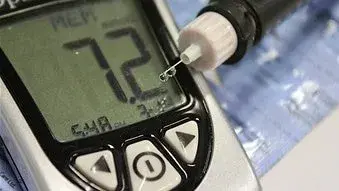
Got someone in my family with diabetes type I, and we’ve been hearing about the “magical” solution coming “soon” since she was diagnosed with it, in her childhood, around 30 years ago.
As such I’ll keep what I see as a healthy amount of scepticism towards this piece of news.

Like somebody else here said, it isn’t because these magics aren’t viable. It’s just more profitable to fleece sick people with treatments than it is to cure them.

Throw it on the pile of solutions we’ll never have because the treatment is more profitable than the cure.

So they’re repurposing surviving pancreas cells to produce insulin like the destroyed beta cells used to, but what are they doing about the autoimmune response? Will my immune system just kill the new insulin-producing cells as well?

Presumably not, since the repurposed cells won’t have the same surface antigens that the immune system targets for destruction.
🤖 I’m a bot that provides automatic summaries for articles:
Click here to see the summary
Research published by Baker Heart and Diabetes Institute scientists shows they have manipulated existing pancreatic stem cells to prompt them to produce insulin.
But lead researcher and Baker institute scientist, Sam El-Osta, said the potential treatment could be viable for children and adults in the future.
“We’ve been able to repurpose these drugs to determine whether we could influence the trajectory by using these small molecule inhibitors in pancreatic ductal cells,” Professor El-Osta said.
“We can quickly influence insulin restoration in a number of days in a dish from tissues derived from type 1 diabetes donors, both children and adults.”
Chief executive of the Australian Diabetes Society and University of Melbourne associate professor, Sof Andrikopoulos, labelled the research as “remarkable”.
While he was hopeful for the future, Dr Andrikopoulos warned steps towards a cure would require consistent funding for diabetes research.
Saved 69% of original text.

Formatting looks off, sure the boy is properly configured?

That’s promising but also very, very early development. It’s too early for the hype and such headlines. This treatment still have to succeed in preclinical trials, then multiple clinical trials.
The research is still in its early days and the next step will be pre-clinical animal trials.
It’d be great if proven effective, but most treatment as this stage of development fail because they’re either ineffective in human trials, or have bad side effects. A small minority succeeds and improve patients life.


